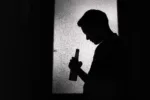
Alcoholic Myopathy: A Comprehensive Guide
Chronic alcohol consumption can lead to muscle weakness, pain and atrophy. This condition is known as alcoholic myopathy.
While alcoholism is often associated with liver disease and cognitive impairment, its lesser-known detrimental effects on muscle health are just as significant. In this blog post, we’ll explore the causes, symptoms and risk factors of alcoholic myopathy as well as available treatment options to raise awareness and offer support to those affected by this debilitating condition.
What is Alcoholic Myopathy?
Alcoholic myopathy, also known as alcoholic muscle disease, is a result of long-term alcohol abuse leading to muscle damage and dysfunction. Chronic alcohol consumption interferes with muscle protein synthesis, impairs muscle regeneration and disrupts the normal functioning of muscle cells, resulting in weakness, pain and loss of muscle mass.
Causes and Risk Factors
The primary cause of alcoholic myopathy is excessive and prolonged alcohol consumption. However, certain factors may increase the risk of developing this condition, including:
- High alcohol intake: Consuming large amounts of alcohol over an extended period can lead to muscle damage and weakness.
- Nutritional deficiencies: Chronic alcohol abuse often leads to malnutrition, depriving the muscles of essential nutrients needed for strength and function.
- Liver disease: Alcohol-related liver disease can impair the body’s ability to metabolize nutrients and toxins, further exacerbating muscle damage.
- Dehydration: Alcohol is a diuretic, leading to dehydration, electrolyte imbalances and muscle cramping.
Symptoms of Alcoholic Myopathy
The symptoms of alcoholic myopathy can vary depending on the severity of muscle damage and individual factors. Common symptoms may include:
- Muscle weakness, especially in the arms and legs
- Muscle pain or tenderness
- Difficulty with mobility and coordination
- Muscle cramps or spasms
- Fatigue and lethargy
- Loss of muscle mass (muscle atrophy)
Diagnosis and Treatment
Diagnosing alcoholic myopathy typically involves a thorough medical history, physical examination and diagnostic tests such as blood tests, electromyography (EMG) and muscle biopsy to assess muscle function and identify any underlying abnormalities. Treatment for alcoholic myopathy focuses on addressing the underlying cause and managing symptoms, and may include:
- Alcohol cessation: The most crucial step in treating alcoholic myopathy is abstaining from alcohol to prevent further muscle damage and promote healing.
- Nutritional therapy: Replenishing essential nutrients through a balanced diet and supplements can help support muscle recovery and function.
- Physical therapy: Exercise programs tailored to individual needs can help improve muscle strength, flexibility and mobility.
- Medications: In some cases, medications such as pain relievers or muscle relaxants may be prescribed to alleviate symptoms.
Alcoholic myopathy is a serious consequence of chronic alcohol abuse that can have profound effects on muscle health and overall well-being. By understanding the causes, symptoms and treatment options for this condition, individuals can take proactive steps to protect their health and seek help if needed. If you or someone you know is struggling with alcoholism or experiencing symptoms of alcoholic myopathy, don’t hesitate to reach out for support and guidance. Recovery is possible, and help is available for those who seek it.








